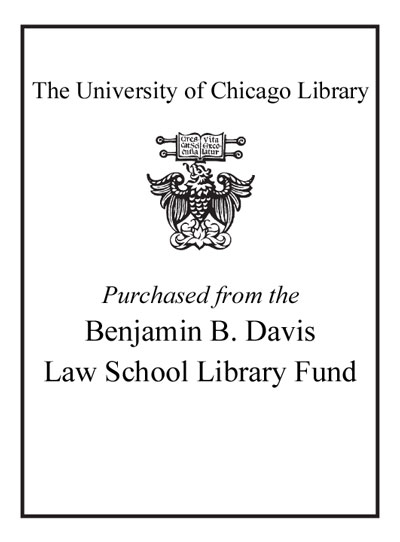Review by Booklist Review
It's easy to think that the Supreme Court's decision (Obergefell v. Hodges) recognizing same-sex marriage was fast in coming. And while public opinion in support of lesbian and gay men marrying has grown significantly since 2009, it actually took decades of work to achieve the 2015 ruling. The excellent introduction by this excellent collection's editors sets freedom to marry in the context of the larger LGBT rights movement, explaining how AIDS, the struggles of committed couples across the country, and the backlash to the Defense of Marriage Act made marriage a priority. The volume contains essays personal, immediate, and free of jargon by lawyers and activists who were at the forefront of the battle, as well as remembrances, often quite moving, by the plaintiffs themselves. Progress is always messy and rarely linear (a time line would have been useful), and while same-sex marriage is now legal, the struggle for federal legislation prohibiting discrimination based on sexual orientation, gender identity, and expression continues. As a core text about one of our society's most significant developments, this volume belongs in every library.--Kenney, Brian Copyright 2016 Booklist
From Booklist, Copyright (c) American Library Association. Used with permission.
Review by Library Journal Review
Coeditors Cathcart (executive director, Lambda Legal) and Gabel-Brett (director of education & public affairs, Lambda Legal) have compiled a unique anthology documenting the road to marriage equality in the United States. Organized into seven sections, beginning with an account of the earliest marriage cases (1970-74) and ending with a survey of religious freedom challenges to LGBT rights protections, the book situates the recent Supreme Court victories in United States v. Windsor and Obergefell v. Hodges within the context of numerous state-level legal suits, legislative victories, and shifts in public opinion. Within each section, movement lawyers and activists bear first-person witness to these campaigns. Particularly important, in this victory-lap moment for LGBT visibility and acceptance, is the inclusion of marriage contrarians who question the ultimate benefit of focusing advocacy efforts on marriage-based family recognition. The anthology format is both a strength and weakness, providing a robustly decentralized view of the nationwide campaign while at times threatening to overwhelm with play-by-play accounts of individual cases. VERDICT Providing insider perspectives on the legal-political strategy that brought marriage equality to the United States, this will be read by those with a legal and activist interest in LGBT rights issues.-Anna J. Clutterbuck-Cook, -Massachusetts Historical Soc. Lib., Boston © Copyright 2016. Library Journals LLC, a wholly owned subsidiary of Media Source, Inc. No redistribution permitted.
(c) Copyright Library Journals LLC, a wholly owned subsidiary of Media Source, Inc. No redistribution permitted.
Review by Booklist Review
Review by Library Journal Review

